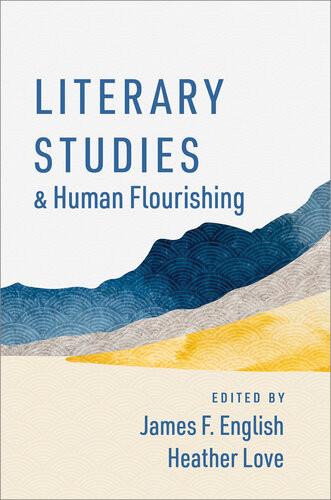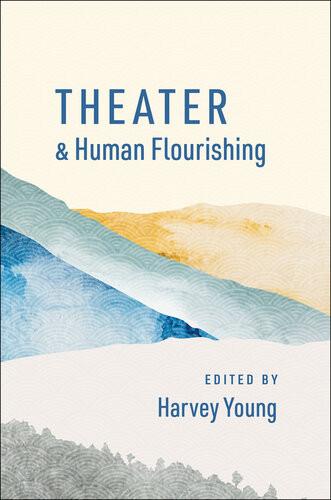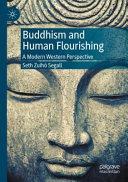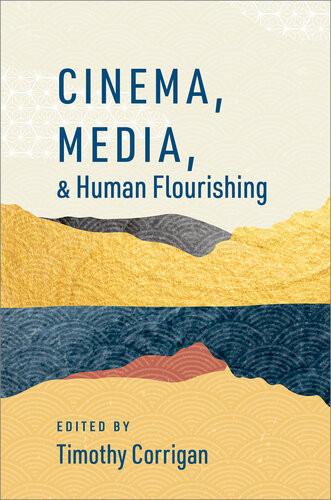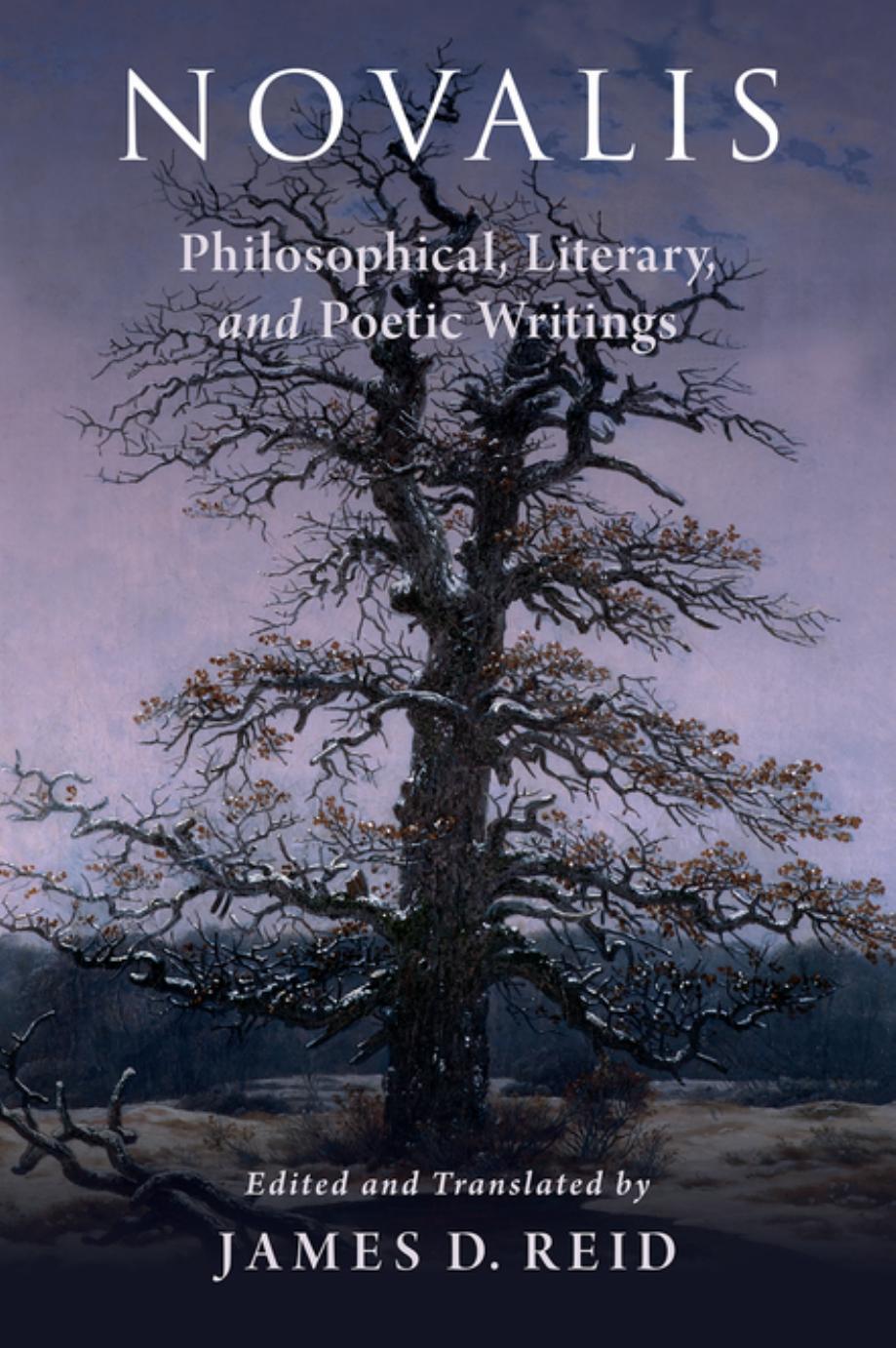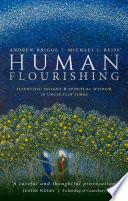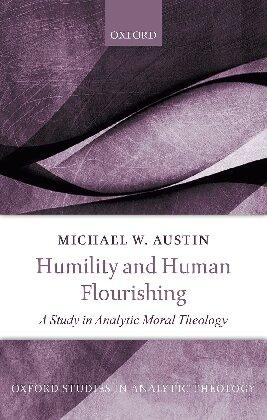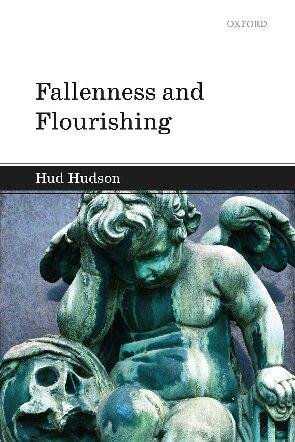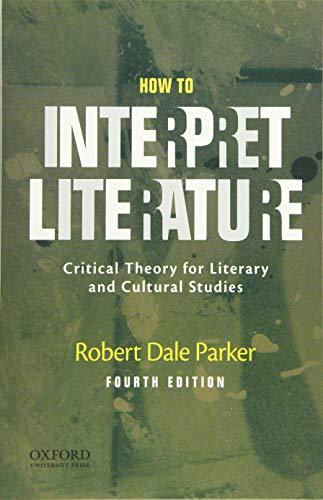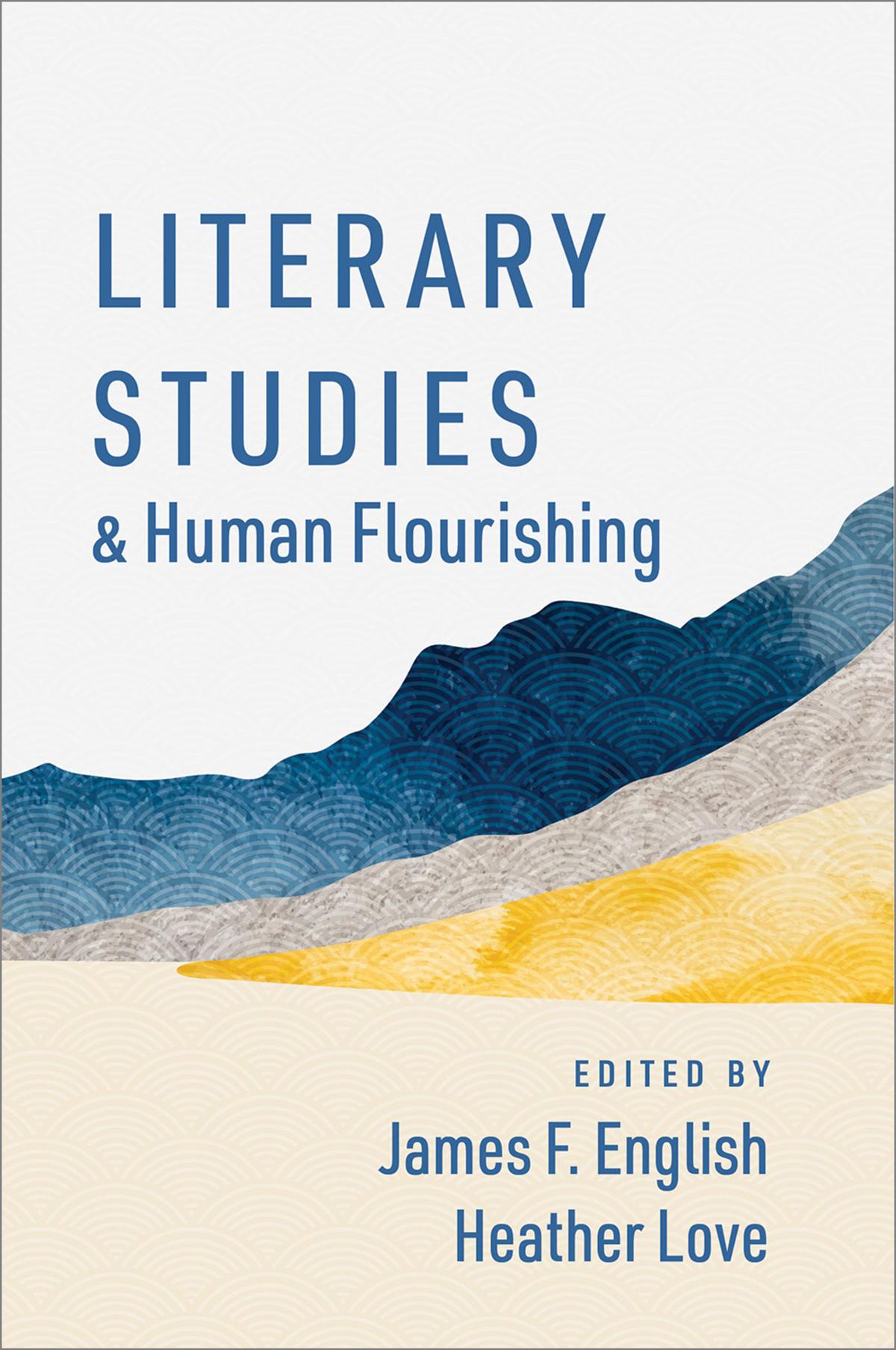Literary Studies and Human Flourishing
Editedby
JAMES F. ENGLISH AND HEATHER LOVE
Oxford University Press is a department of the University of Oxford. It furthers the University’s objective of excellence in research, scholarship, and education by publishing worldwide. Oxford is a registered trade mark of Oxford University Press in the UK and certain other countries.
Published in the United States of America by Oxford University Press 198 Madison Avenue, New York, NY 10016, United States of America.
© Oxford University Press 2023
All rights reserved. No part of this publication may be reproduced, stored in a retrieval system, or transmitted, in any form or by any means, without the prior permission in writing of Oxford University Press, or as expressly permitted by law, by license, or under terms agreed with the appropriate reproduction rights organization. Inquiries concerning reproduction outside the scope of the above should be sent to the Rights Department, Oxford University Press, at the address above.
You must not circulate this work in any other form and you must impose this same condition on any acquirer.
Library of Congress Cataloging-in-Publication Data
Names: English, James F., 1958– editor. | Love, Heather, editor.
Title: Literary studies and human flourishing / [edited by] James F. English and Heather Love.
Description: New York, NY : Oxford University Press, [2023] | Series: The humanities and human flourishing | Includes bibliographical references and index.
Identifiers: LCCN 2022029587 (print) | LCCN 2022029588 (ebook) | ISBN 9780197637234 (paperback) | ISBN 9780197637227 (hardback) | ISBN 9780197637258 (epub)
Subjects: LCSH: Literature Philosophy. | Conduct of life. | Happiness. | Wellbeing. | Positive psychology.
Classification: LCC PN45 .L4896 2023 (print) | LCC PN45 (ebook) | DDC 801/.3—dc23/eng/20220822
LC record available at https://lccn.loc.gov/2022029587
LC ebook record available at https://lccn.loc.gov/2022029588
DOI: 10.1093/oso/9780197637227.001.0001
Contents
ListofIllustrations
SeriesEditor’sForeword
ListofContributors
Introduction: Literary Studies and Human Flourishing
JamesF.EnglishandHeatherLove
PART I: HAPPY READING: LITERATURE WITHOUT THE ACADEMY
Bibliotherapy and Human Flourishing
LeahPrice
Bad Habits on Goodreads? Eclecticism vs. Genre-Intolerance among Online Readers
JamesF.English,ScottEnderle,andRahulDhakecha
PART II: FLOURISHING BEYOND REASON: LITERATURE’S AUGMENTED REALITIES
Flourishing Spirits
ChristopherCastiglia
Sage Writing: Facing Reality in Literature
DavidRussell
PART III: FLOURISHING IN CRISIS: THE POETICS OF DISASTER
Literature of Uplift
DavidJames
Black Ecological Optimism and the Problem of Human Flourishing
SonyaPosmentier
PART IV: NON-NORMATIVE FLOURISHING: DISABILITY AND AGING
Literary Study, the Hermeneutics of Disability, and the Eudaimonic Turn
JanetLyon
Wise Old Fools: Positive Geropsychology and the Poetics of Later-Life Floundering
ScottHerring
PART V: POSITIVE AFFECT: REDESCRIPTION AND REPAIR
Therapeutic Redescription
BethBlum
Merely Ameliorative: Reading, Critical Affect, and the Project of Repair
HeatherLove
Index
List of Illustrations
2.1 2.2
2.3
2.4
2.5
2.6
2.7
2.8 2.9 8.1 9.1
Analysis of a corpus containing all the 4- and 5-star Goodreads reviews of 500 top-10 annual bestsellers and 1,300 prize-listed novels published between 1960 and 2016. The Linguistic Inquiry and Word Count 2015 tool (LIWC).
Most distinguishing words in reviews of bestsellers (left) and prize-listed novels (right).
Most distinguishing words for reviews of bestsellers (left) and prize-listed novels (right), 4- or 5-star reviews only.
Taste profiles by genre of 1,672 highly active Goodreads fiction readers.
Distribution by genre of books reviewed by readers primarily of romance and science fiction.
Taste profiles of 1,672 readers with slide bar from Genre map to Reader Network map at 96 percent. Two readers who favor historical fiction. Reading by the numbers: stats tracking on Goodreads. Christopher Peterson, “Table 2.2. Classification of Psychological Disorders.”
From Joseph V. Ciarrochi and Ann Bailey, A CBT Practitioner’s GuidetoACT.
Series Editor’s Foreword
Imagine being invited to a weekend meeting to discuss connections between the humanities and human flourishing. You talk about ways in which the humanities can help us understand what human flourishing is—and is not. You explore how the humanities can help increase human flourishing. And you consider whether human flourishing is an absolute good, or whether it comes with certain limits and even potential dangers. How do you imagine the conversation playing out? What contributions might you make to the discussion?
The volumes in this series were borne out of just such a meeting. Or rather a series of such meetings, each gathering including some dozen scholars in a particular discipline in the humanities (understood to be inclusive of the arts). These disciplines include philosophy, history, literary studies, religious studies and theology, theater, cinema and media, music, and the visual arts. Participants were asked to consider how their work in their discipline intersects with well-being (taken to be roughly synonymous with human flourishing), along with a series of specific questions:
What does your discipline say about the cultivation of wellbeing? How does it encourage the implementation of wellbeing?
In what ways does your discipline support flourishing? Do some approaches within your discipline advance human flourishing more effectively than others? Are there ways in which certain aspects of your discipline could more effectively promote wellbeing?
Does your discipline contribute to well-being in any unique ways in which other endeavors do not?
• How does your discipline conceptualize, understand, and define well-being?
Are there ways in which your discipline can obstruct human flourishing?
As might be expected, the conversations in these meetings were rich and wide-ranging. Some of them headed in expected directions; others were more surprising. Each of them yielded opportunities to question assumptions and deepen perspectives. The conversations were rooted in disciplinary contexts and questions but yielded many generalizable insights on how to conceptualize human flourishing more clearly, how to cultivate it more effectively, and how to avoid negative consequences of understanding it in incomplete or overblown ways. I cannot properly describe or even summarize the richness of the discussions here, but I would like to point out a few of the highlights included in each of the resulting volumes.
Philosophy and Human Flourishing, edited by John J. Stuhr, addresses a number of fundamental questions. What is the value of discussing human flourishing in a world that in so many ways is decidedly not flourishing? In what ways is flourishing similar to and different from happiness? What is the role of morality in human flourishing? How does it relate to systemic privilege and oppression? To what degree is flourishing properly the concern of individuals, and to what degree is it a function of communities and societies? What are key factors in the fostering of flourishing? In addressing these questions, philosophers explore concepts such as mattering,
homeostasis, pluralism, responsibility, and values, and consider the roles of individuals, educational institutions, and governments.
History and Human Flourishing, edited by Darrin M. McMahon, centers on the question, What is the value of history for life? This core question leads to a number of further inquiries. Is history only about the past, or does it have important implications for the present and the future? If the latter, then how can historical inquiry most effectively contribute to well-being? Does such inquiry currently focus in an imbalanced way on ill-being—on prejudices, class struggles, and wars? Such work is doubtless of great importance, not least by investigating how claims about happiness can serve as propaganda for continued oppression. But would hope for the future be more effectively kindled and concrete steps toward its realization more adeptly guided by increased attention to what has actually gone well in the past and what we can learn from it, or by more focus on how human beings have responded positively to adversity?
Literary Studies and Human Flourishing, edited by James F. English and Heather Love, focuses on the transformative power of literature. Scholars examine a range of topics, including the reparative possibilities of a literary encounter, the value of bibliotherapy and of therapeutic redescription, the genre of “uplit,” and evolving methods for studying the activities and experiences of actual readers. A central question of this volume concerns the limits on transformations effected through literature. Several contributors worry that harnessing literary studies to the enterprise of human flourishing might lead readers merely to conform rather than to transform. To what extent might human flourishing serve as a palliative, enabling and encouraging readers to adapt to individual lives that lack moral depth and to social conditions that are rife with injustice, and thus obstruct the difficult and unsettling work of disruptive transformation needed for lasting individual and collective betterment?
Religious Studies, Theology, and Human Flourishing, edited by Justin Thomas McDaniel and Hector Kilgoe, explores ways in which individual and collective well-being can be increased through various religious perspectives and practices, including the Hindu concept of
sanmati (“goodwill, wisdom, and noble-mindedness”), Buddhist meditation, and the cultivation of spiritual joy even while facing adversity. Scholars consider challenging questions concerning the proper contexts for learning about religion and for learning from religion, the right balance between the acknowledgment of suffering and the fostering of well-being, and the relationship between human flourishing and nonhuman worlds (including both natural and supernatural domains). A concern of some of these scholars is whether human flourishing entails a false universalism, one that seeks to reduce cultural diversities to one particular notion of what is desirable or even acceptable, and whether such a notion could be used to rate the value of different religions, or even ban religious practices (e.g., fasting, celibacy, or other ascetic austerities) that might be deemed misaligned with well-being.
Theater and Human Flourishing, edited by Harvey Young, considers the unique resources of theater and performance for imagining and enhancing well-being. Because theater involves both performers and audience members, it is inherently communal in ways many humanities disciplines and art forms are not. Theater allows groups of people—often strangers—to come together and experience the world in new ways. More than just an escape from ordinary life or a simple mirroring of reality, theater can provide opportunities for communal reimagining of the world, exploring new ways of thinking, feeling, and relating that can be experienced and then enacted to bring about a more flourishing future. Scholars examine connections between theater and human flourishing in more and less traditional spheres, looking at ways performance practices can be used to critique inadequate notions of human flourishing and to increase well-being in a wide variety of contexts, ranging from community theater to organizations serving soldiers with post-traumatic stress disorder (PTSD), and from oppressed groups to politically divided societies.
Cinema, Media, and Human Flourishing, edited by Timothy Corrigan, looks to film and a whole range of contemporary forms of digital media for what they can teach us about the nature of human flourishing and how it can be cultivated. These forms of
communication have vast audiences and thus great power to support or subvert well-being. Contributors to this volume observe that human flourishing often seems to come piecemeal and as a hardwon result of conflict and struggle, and they explore ways in which well-being can be supported by collaborative practices for creating content, by the particular ways narratives are crafted, by certain genres, and by the various values that are embraced and transmitted. Contributors also consider how these popular forms can support individuals and groups on the margins of society by making more visible and sympathetic their struggles toward flourishing.
Music and Human Flourishing, edited by Anna Harwell Celenza, complements the commonly accepted and scientifically supported view that participating in music—as a listener, performer, or composer—can increase individual well-being. Instead of focusing on music as a performing art, this volume examines music as a humanities discipline, emphasizing the importance and value of music scholarship for fostering individual and collective human flourishing. How can music scholars (musicologists, ethnomusicologists, and music theorists) strengthen the effects of music on flourishing through a consideration of broader cultural, social, and political contexts? Contributors explore how processes of contemplation, critique, and communication within music scholarship can deepen the experience of music, resulting not just in the enhancement of individual well-being but in the more effective cultivation of wisdom and the greater realization of social justice.
Visual Arts and Human Flourishing, edited by Selma Holo, begins with the experience of artists themselves and the function of art in our society. If well-being is thought of as the happiness of selfsatisfied complacency, then it would seem to be the antithesis of art, which is often disruptive, unnerving, and unsettling, asking viewers to question their assumptions and inviting them to see the world in new ways. But if well-being is understood more deeply as the flourishing that can arise from the full range of human experience, including the discomfort of contending forms of meaning and contested visions of reality, then it is difficult to think of it without art. Contributors to this volume consider the overwhelming personal
necessity artists have to create, the role of well-being in art history, the increasing emphasis on human flourishing in architecture and public art, and salient questions of ethics, accessibility, and social justice in the context of art museums.
The Humanities and Human Flourishing, for which I serve as editor, is an interdisciplinary, capstone volume that contains contributions from the editors of the eight disciplinary volumes. After the disciplinary meetings were concluded, we gathered together to discuss what we had learned through the process. We considered both similarities and differences across the disciplinary discussions on human flourishing, identifying social justice and pedagogy as two common themes that emerged in the meetings. Like the other volumes in the series, this volume does not pretend to provide simple solutions or even unified answers to questions of how the humanities are or should be connected to the conceptualization and cultivation of human flourishing. Rather, it provides thoughtful questions and perspectives, distilled as it is from a deliberate process of extended engagement from diverse groups of scholars across eight different arts and humanities disciplines.
I would like to welcome you, the reader, to this book series. I hope you find it stimulating and even inspiring in its explorations into the complexities of the relationship between the humanities and human flourishing. And I hope you read across the volumes, as they are written in an accessible style that will yield valuable insights whether or not you have particular expertise in the discipline of the author whose work you are reading. To whatever degree you immerse yourself in this book series, though, I am sure of one thing: You will find it incomplete. As deep and as broad ranging as we tried to be in our explorations, none of the participants are under the illusion that the discussions and volumes brought it to a conclusion. We are keenly aware that a group of a dozen scholars, no matter how diverse, cannot speak for an entire discipline, and we realize that a focus on eight disciplines does not cover the entire domain of the humanities. Furthermore, our discussions and most of the writing were completed before the COVID-19 pandemic, which has made the nature and importance of flourishing all the more salient
and has raised a host of new questions about well-being. Instead, we think of our work as an important beginning, and we would like to invite you to join the conversation. We hope a greater number and diversity of scholars, researchers, creators, practitioners, students, leaders in cultural organizations and creative industries, office holders in government, philanthropists, and members of the general public will bring their interests and expertise to the conversation, perhaps leading to new volumes in this series in the future. Investigations into human flourishing contribute to our knowledge and understanding of the human condition, and they have practical implications for the well-being of scholars, students, and societies. We hope our ongoing work together will enable the humanities to play a greater role in these investigations, effecting changes in scholarship, research, pedagogy, policy, and practice that will make them more supportive of human flourishing in academia and in the world at large.
Background and Rationale
For readers interested in more information on the background and rationale of this book series, I am happy to share further details on the perspectives, aims, and hopes that motivated it. A key catalyst for the development of this series was the dual observation that a growing number of individuals and organizations are focusing on human flourishing and that most of the headlines in this domain seem to be coming from the social sciences. Yale psychology professor Laurie Santos, for example, made the news when she developed a course on “Psychology and the Good Life”—and some 1200 students (nearly a quarter of Yale’s undergraduate population) signed up for it.1 As of this writing, her subsequent podcast, “The Happiness Lab,” has reached 65 million downloads.2 On an international scale, dozens of countries around the world have adopted psychological measures of subjective well-being as a complement to economic indicators, and a growing number of
nations have embraced well-being, happiness, or flourishing as an explicit governmental goal.3 The Organization for Economic Cooperation and Development (OECD), founded in 1961 to stimulate economic progress and world trade, has acknowledged the insufficiency of economic indicators alone for tracking progress. It launched its Better Life Initiative in 2011 to measure what drives the well-being of individuals and nations and to determine how countries can best support greater progress for all.4 The United Nations publishes the World Happiness Report every year, releasing it on March 20, the UN International Day of Happiness.5
These are examples in the social sciences of what I have elsewhere called a “eudaimonic turn,” an explicit commitment to human flourishing as a core theoretical and research interest and a desired practical outcome.6 Over the last several decades, there has been a growing interest in human flourishing in economics, political science, psychology, and sociology, and in fields influenced by them, such as education, organizational studies, medicine, and public health. Perhaps the most well-known example of this eudaimonic turn in the social sciences occurred in psychology with the advent of positive psychology. Reflecting perspectives developed in humanistic psychology in the mid-twentieth century and building on increasing empirical work in self-efficacy, self-determination theory, subjective and psychological well-being, optimism, flow, passion, hope theory, positive emotions, and related areas, Martin Seligman and his colleagues launched the field of positive psychology. During a 1998 presidential address to the American Psychological Association, Seligman pointed out that mainstream psychology had become fixated on understanding and treating psychopathology. He argued that, although extremely important, healing mental illness is only part of psychology’s mission. More broadly, he claimed, psychology should be about making the lives of all people better. He noted that this requires the careful empirical study of what makes life most worth living, including a deep understanding of flourishing individuals and thriving communities. Such study, he believed, would both increase well-being and decrease ill-being, since human
strengths are both important in their own right and effective as buffers against mental illness. Known as “the scientific study of what enables individuals and societies to thrive,”7 positive psychology has had a transformative effect on psychology and has deeply influenced many other fields of research and practice.
What role do the humanities play in all of this? What role could and should they play? How can the humanities help us conceptualize human flourishing more deeply, cultivate it more effectively, and critique it more insightfully? As a philosopher working in the field of positive psychology for more than twenty years, I have been concerned that there are not more voices from the humanities centrally involved in contemporary work in human flourishing. One of the core aims of this project and book series is to make a way for humanities scholars to play a larger role in this domain by inviting them to consider explicitly what contributions their work and their disciplines can make to the theory, research, and practice of human flourishing.
Historically, of course, human flourishing is at the root of the humanities.8 The humanities were first defined and developed as a program of study by Renaissance scholars dissatisfied with scholasticism, which they perceived as leading to an overly technical university curriculum removed from the concerns of everyday life and unable to guide students toward human flourishing. They advocated, instead, a return to the Greek and Roman classics, reading them for insights and perspectives on how to live life well. Indeed, the Greeks and Romans had developed comprehensive programs of study (paideia and artes liberales, respectively) designed to teach students how to flourish individually and how to contribute to collective flourishing by participating effectively and wisely in civic life.
This emphasis on the understanding and cultivation of human flourishing that was so important to the Greeks and Romans was also of central concern to other philosophical and religious traditions that developed in the ancient world during what Karl Jaspers called the Axial Age.9 Hinduism, Buddhism, Confucianism, Daoism, and
Judaism, for example, along with the later Christianity and Islam, addressed the problem of human suffering and offered ways of promoting individual and collective flourishing. Although different in their cultural context and specific details, each of these traditions counseled against lives exclusively devoted to pleasure, wealth, power, or fame. They held that such lives only magnify suffering and that flourishing is actually fostered through a cultivation of virtue that allows for the transcendence of narrow, individual concerns in favor of a connection with the larger social world, the broader universe, or even the divine. Cultural forms such as literature, music, visual art, architecture, theater, history, and philosophical reflection were employed in the cultivation of virtue and the establishment of the broader and deeper connections valued for human flourishing.
Today, the humanities tend to be thought of less as a comprehensive program of study or means to cultivate virtue and more as a collection of academic disciplines. These disciplines are located largely within colleges and universities and are thus shaped by the values of these institutions. Much of higher education is driven more by the aim of creating knowledge than the goal of applying wisdom. To succeed in such an environment, scholars are required to become highly specialized professionals, spending most of their time publishing books and articles for other highly specialized professionals in their discipline. The courses they teach often focus more on the flourishing of their discipline than on the flourishing of their students, requiring students to learn aboutcourse content but not necessarily to learn fromit. When human flourishing is addressed in the classroom, it is all too often done in a way that makes it difficult for students to apply it to their lives, and in many cases, it focuses more on obstacles to flourishing than on the nature and cultivation of well-being. It is important, of course, to understand and resist alienation, injustice, and malfeasance in the world and to expose corrosive ideologies that can permeate texts and other forms of culture. But it is also important to understand that flourishing is more than just the absence of languishing. And the argument has been made that “suspicious” approaches in the
humanities need to be balanced by reparative approaches10 and that critique needs to be complemented by a “positive aesthetics”11 and a “hermeneutics of affirmation.”12 Meanwhile, students in the United States, at least, are reporting astonishingly high levels of anxiety, depression, and suicidality,13 while at the same time coming under increasing economic pressure to select courses of study that will directly help them find employment. Students who in the past might have followed their interests in the humanities are now more likely to major in STEM fields or to enroll in pre-professional tracks. Consequently, the number of students earning bachelor’s degrees in the humanities is decreasing significantly.14
Would a eudaimonic turn in the humanities be helpful in addressing these obstacles of narrow professionalism, imbalanced focus, and student pressure? Would it help with what Louis Menand has called a “crisis of rationale” in the humanities, with scholars unable to agree on the fundamental nature and purpose of the humanities and thus unable to communicate their value clearly to students, parents, philanthropists, policymakers, and the general public?15Could the eudaimonic turn provide a unifying rationale in the humanities? Of course, there is a sense in which such a turn would actually be a eudaimonic return. This return would not be a nostalgic attempt to recover some imagined glorious past. The human flourishing historically supported by the humanities was significant, as mentioned above, but it was also very far from perfect, often embracing perspectives that supported unjust power structures that excluded many people—including laborers, women, and enslaved persons—from participating in flourishing and that enabled the exploitation of these individuals to the advantage of those in power. Tragically, our society suffers from some of these same injustices today. Instead of a glorification of a problematic past, which could well reinforce these injustices, a eudaimonic re/turn would invite us to focus our attention on perennial questions about human flourishing, building on wisdom from the past, but committing ourselves to a search for more inclusive answers that are fitting for our contemporary world.16
Not surprisingly, there is disagreement among scholars in these volumes, with some contributors endorsing the eudaimonic turn in the humanities and working to advance it and others putting forward a variety of concerns about the limitations and potential dangers of such an approach—and some even doing both. Scholars supporting a eudaimonic turn believe it could revitalize the humanities by encouraging deeper investigations into the eudaimonic hopes that initially gave rise to their disciplines and the various ways in which contemporary work can support and develop these hopes. They believe these investigations could bring together scholars across the various humanities disciplines to create a common understanding and language for an examination of questions of human flourishing appropriate for our times. To be successful, such a project would not require complete agreement among scholars on the answers to these questions. On the contrary, diverse perspectives would enrich the inquiry, opening up new possibilities for human flourishing that are more equitable and widespread and that support the flourishing of the nonhuman world as well. Some contributors see significant potential in collaborating with the social sciences in their eudaimonic turn, a process that can be facilitated through the Positive Humanities, a new, interdisciplinary field of inquiry and practice focused on the relationship between culture and human flourishing.17
Scholars endorsing a eudaimonic turn in the humanities believe it could also inform, inspire, and support the work of museums, libraries, performing arts centers, and even creative industries (in music, movies, publishing, and other domains) to advance human flourishing more broadly in our society. They see a eudaimonic turn as also being of potential value to the millions of students who study the humanities each year. Without expecting humanities teachers and professors to take on therapeutic roles, they see considerable possible benefits in a pedagogical focus on how human flourishing can be understood and cultivated, with resulting courses intentionally designed to promote and preserve students’ well-being and mitigate and prevent their ill-being.18 Indeed, these scholars
believe the volumes in this series might serve as useful texts for some of these courses.
Scholars with misgivings about a eudaimonic turn, on the other hand, raise a number of important concerns. Some contributors wonder whether human flourishing is a proper ideal in a world with so much suffering. Would such an ideal raise false hopes that would actually contribute to that suffering? Furthermore, are there more valuable things than human flourishing (e.g., ethics, the environment), and should flourishing be limited in favor of these greater goods? Is human flourishing inextricably linked to problematic ideological perspectives, perhaps ones that place too much emphasis on the individual and downplay or ignore issues of systemic injustice, or perhaps ones that serve the interests of a small number of persons in power and encourage everyone else to conform to the status quo? Is human flourishing a false universalism that might result in a failure to see and acknowledge deep cultural differences—or worse, that might see these differences as deviances that need to be suppressed and punished? Could an emphasis on well-being be employed to exploit individuals or groups of people, as notions of happiness have sometimes been used in the past? Are there other unexpected harms that might arise from a eudaimonic turn?
The unresolved tensions among the various chapters are part of what makes these volumes compelling reading. Are there ways to overcome concerns about the eudaimonic turn by clarifying its nature and aims, avoiding the dangers raised? Or will these concerns always persist alongside efforts to achieve individual and communal betterment through a theoretical and practical emphasis on flourishing? I welcome you, the reader, to join this discussion. What are your views on the perspectives expressed in these volumes? What points might you contribute to the ongoing conversation?
Process and People
I would like to conclude with a fuller account of the process by which the various volumes were created and an acknowledgment of the individuals and institutions who have made this book series possible. With the desire to give contributors ample time to reflect on how their work and their discipline relate to human flourishing, as well as to create opportunities to discuss these ideas with colleagues, we put into place an extended process for the creation of these volumes. After deciding on the eight disciplines in the arts and humanities we would be able to include in the project, we invited a leading scholar to chair the work in each of these disciplines and asked them to bring together a diverse group of some dozen noted scholars in their discipline.19 For each group, we provided participants with some background reading20 and asked them to prepare a draft essay on how their scholarly work informs the conceptualization and cultivation of human flourishing. Many participants chose to address the background reading— appreciatively, critically, or both—in their papers, although none were required to address it at all. We then circulated these drafts to the entire group in preparation for a three-day, face-to-face meeting, during which the disciplinary chair led a discussion and workshopping of the drafts. These disciplinary consultations, held in 2018 and 2019, were also joined by a junior scholar (usually a graduate student) in the field, one or two social scientists with work on relevant topics, and the Core Team.
Following these meetings, participants were asked to revise their drafts in light of our discussion, with the chairs serving as editors for the resulting disciplinary volumes. Given the nature of the project, I also read each of the contributions, providing comments along the way. From beginning to end, the process for creating and editing each of the volume manuscripts took well over a year and allowed for deep engagement with the subject matter and with other scholars. The disciplinary chairs and I were careful to emphasize that
these discussions were intended to be robust and the writing authentic, with no foregone conclusions about the nature of human flourishing or the value of exploring it, and we were pleased by the range and depth of thinking undertaken by each group.
As mentioned above, after we held the eight disciplinary consultations, we held a ninth meeting where we invited the chairs of each of the disciplinary groups to present and discuss drafts of essays for a ninth, interdisciplinary volume sharing what they and their colleagues had learned through the process. We also invited a few humanities policy leaders, including past National Endowment for the Humanities Chairman William Adams, to join us and help think about the broader implications of this work.
The compiling of the volumes was organized and overseen by the Humanities and Human Flourishing (HHF) Project at the University of Pennsylvania. HHF was founded in 2014 to support the interdisciplinary investigation and advancement of the relationship between the humanities and human flourishing. As the founding director of HHF, I am pleased that it has developed into a growing international and multidisciplinary network of more than 150 humanities scholars, scientific researchers, creative practitioners, college and university educators, wellness officers, policy experts, members of government, and leaders of cultural organizations. In addition to the disciplinary consultations described above and the resulting book series, we have published a number of conceptual papers and systematic reviews, developed conceptual models to guide empirical research, and created and validated a toolkit of measures. Designated a National Endowment for the Arts Research Lab, HHF has developed ongoing programs of research (including on art museums and human flourishing and on narrative technologies and well-being) to understand, assess, and advance the effects of engagement in the arts and humanities on human flourishing. We have published The Oxford Handbook of the Positive Humanities to help establish the Positive Humanities as a robust field of inquiry and practice at the intersection of culture, science, and human flourishing. For more information on HHF, including each of these
endeavors as well as its current undertakings, please visit www.humanitiesandhumanflourishing.org.
I am deeply grateful to all the individuals and institutions whose collaboration has made this book series possible. I would like to begin by thanking Chris Stewart and Templeton Religion Trust for the generous grants that have underwritten this work. Thanks also go to the University of Pennsylvania for their robust institutional and financial support. (Of course, the views expressed in these volumes are those of the authors and do not necessarily reflect the views of Templeton Religion Trust or of the University of Pennsylvania.) I am grateful to the more than 80 contributors to these volumes for accepting our invitation to be a part of this work and bringing more depth and richness to it than I could have imagined. I am especially grateful to the chairs of each of the disciplinary groups for their belief in the importance of this work and their long-term dedication to making it a success. I also wish to express my appreciation for the hard work of the entire HHF Core Team, including Research Director Louis Tay, postdoctoral fellows Yerin Shim and Hoda Vaziri, Research Manager Michaela Ward, and especially Assistant Director Sarah Sidoti, who meticulously planned and oversaw each of the disciplinary consultations and used her expertise in academic publishing to help shape this book series in countless crucial ways. Most of the disciplinary consultations took place on the beautiful grounds of the Shawnee Inn & Golf Resort along the banks of the Delaware River. I am grateful to Charlie and Ginny Kirkwood, John Kirkwood, and all the folks at Shawnee for their gracious support and hospitality. Additionally, I am grateful to Jonathan Coopersmith and the Curtis Institute for donating space for the music group to meet, and to Bill Perthes and the Barnes Foundation for similarly donating space for the visual arts group. Thanks to the Penn Museum for a beautiful setting for the first day of our Chairs consultation and to Marty Seligman and Peter Schulman for donating further space at the Positive Psychology Center. Finally, I am grateful to Peter Ohlin and all the staff and reviewers at Oxford University Press for their partnership in publishing the volumes in this book series. I hope these volumes inspire further conversation, welcoming
more people from a larger number of disciplines and a greater range of nationalities and cultural and ethnic backgrounds to inquire into what human flourishing is, how its potential harms can be avoided, and how its benefits can be more deeply experienced and more broadly extended.
James O. Pawelski February 19, 2022
1 David Shimer, “Yale’s Most Popular Class Ever: Happiness.” The New York Times, January 26, 2018. https://www.nytimes.com/2018/01/26/nyregion/at-yaleclass-on-happiness-draws-huge-crowd-laurie-santos.html
2 Lucy Hodgman, and Evan Gorelick, “Silliman Head of College Laurie Santos to Take One-Year Leave to Address Burnout.” Yale News, February 8, 2022. https://yaledailynews.com/blog/2022/02/08/silliman-head-of-college-laurie-santosto-take-one-year-leave-to-address-burnout/
3 https://weall.org/; https://www.ons.gov.uk/peoplepopulationandcommunity/wellbeing/articles/measur esofnationalwellbeingdashboard/2018-04-25; https://www.gnhcentrebhutan.org/history-of-gnh/; https://www.worldbank.org/en/news/feature/2013/10/24/Bolivia-quiere-replicarel-indice-de-felicidad-de-Butan; https://u.ae/en/about-the-uae/the-uaegovernment/government-of-future/happiness/;
4 https://www.oecd.org/sdd/OECD-Better-Life-Initiative.pdf
5 https://worldhappiness.report/
6 James O. Pawelski, “What Is the Eudaimonic Turn?,” in The Eudaimonic Turn: Well-Being in Literary Studies, ed. James O. Pawelski and D. J. Moores (Madison, NJ: Fairleigh Dickinson University Press, 2013), 3; and James O. Pawelski, “The Positive Humanities: Culture and Human Flourishing,” in The Oxford Handbook of the Positive Humanities, ed. Louis Tay and James O. Pawelski (New York: Oxford University Press, 2022), 26.
7 Constitution of the International Positive Psychology Association, Article 1, Section 2.
8 Pawelski, “The Positive Humanities,” 20–21; and Darrin M. McMahon, “The History of the Humanities and Human Flourishing,” in The Oxford Handbook of the Positive Humanities, ed. Louis Tay and James O. Pawelski (New York: Oxford University Press, 2022), 45–50.
9 Karl Jaspers, The Origin and Goal of History (Abingdon, UK: Routledge, 2011), 2.
10 Eve K. Sedgwick, “Paranoid Reading and Reparative Reading: Or, You’re So Paranoid, You Probably Think This Introduction Is About You,” in Novel Gazing: Queer Readings in Fiction, ed. Eve K. Sedgwick (Durham, NC: Duke University Press, 1997), 1–37.
11 Rita Felski, Uses of Literature (Malden, MA: Blackwell, 2008), 22.
12 D. J. Moores, “The Eudaimonic Turn in Literary Studies,” in The Eudaimonic Turn: Well-Being in Literary Studies, ed. James O. Pawelski and D. J. Moores (Madison, NJ: Fairleigh Dickinson University Press, 2013), 27.
13 Publications and Reports, National College Health Assessment, American College Health Association, accessed December 11, 2021, https://www.acha.org/NCHA/ACHANCHA Data/Publications and Reports/NCHA/Data/Publications and Reports.aspx ?hkey=d5fb767c-d15d-4efc-8c41-3546d92032c5
14 Jill Barshay, “PROOF POINTS: The Number of College Graduates in the Humanities Drops for the Eighth Consecutive Year,” The Hechinger Report, November 22, 2021, https://hechingerreport.org/proof-points-the-number-ofcollege-graduates-in-the-humanities-drops-for-the-eighth-consecutive-year.
15 Louis Menand, “The Marketplace of Ideas,” American Council of Learned Societies Occasional Paper No. 49 (2001) http://archives.acls.org/op/49 Marketplace of Ideas.htm.
16 Pawelski, “What Is the Eudaimonic Turn?” 17; Pawelski, “The Positive Humanities,” 26; and McMahon, “The History of the Humanities and Human Flourishing,” 45, 54.
17 For more information on the Positive Humanities, see Louis Tay and James O. Pawelski, eds., The Oxford Handbook of the Positive Humanities (New York: Oxford University Press, 2022), especially the first three foundational chapters. Also, visit www.humanitiesandhumanflourishing.org.
18 Furthermore, would students who perceive real life value in humanities courses be more likely to make room for them in their schedules, as suggested by the students who enrolled in Laurie Santos’s course on “Psychology and the Good Life” in such large numbers? If so, could a side benefit of the eudaimonic turn be greater numbers of students signing up for courses in the humanities?
19 For a full list of project participants, visit www.humanitiesandhumanflourishing.org.
20 Martin E. P. Seligman and Mihaly Csikszentmihalyi, “Positive Psychology: An Introduction,” American Psychologist 55 (1) (2000): 5–14; Darrin M. McMahon, “From the Paleolithic to the Present: Three Revolutions in the Global History of Happiness,” in e-Handbook of Subjective Well-being, ed. Ed Diener, Shigehiro
Oishi, and Louis Tay (Champaign, IL: DEF Publishers, 2018); James O. Pawelski, “Defining the ‘Positive’ in Positive Psychology: Part I. A Descriptive Analysis,” The Journal of Positive Psychology 11 (4) (2016): 339–356; James O. Pawelski, “Defining the ‘Positive’ in Positive Psychology: Part II. A Normative Analysis,” The Journal of Positive Psychology 11 (4) (2016): 357–365; James O. Pawelski, “Bringing Together the Humanities and the Science of Well-Being to Advance Human Flourishing,” in Well-Being and Higher Education: A Strategy for Change and the Realization of Education’s Greater Purposes, ed. Donald W. Harward (Washington, D.C.: Bringing Theory to Practice, 207–216); and Louis Tay, James O. Pawelski, and Melissa G. Keith, “The Role of the Arts and Humanities in Human Flourishing: A Conceptual Model,” The Journal of Positive Psychology 13 (3) (2018): 215–225.
List of Contributors
Beth Blum is the Harris K. Weston Associate Professor of Humanities at Harvard University. She teaches works from all periods with an emphasis on modernist and contemporary literature. Her monograph The Self-Help Compulsion: Searching for Advice in Modern Literature was published in 2020. Other writing has appeared in PMLA, Modern Language Quarterly, Modernism/modernity, TheNewYorker.com, TheChronicleofHigher Education, and AeonMagazine
Christopher Castiglia is Distinguished Professor of English at the Pennsylvania State University. He is the author of Bound and Determined: Captivity, Culture-Crossing, and White Womanhood fromMary Rowlandsonto Patty Hearst, Interior States: Institutional Consciousness and the Inner Life of Democracy in the Antebellum United States, The Practices of Hope: Literary Criticism in DisenchantedTimes, and, with Christopher Reed, IfMemoryServes: Gay Men, AIDS, andthePromiseoftheQueerPast.He is cofounder of C19: the Society of Nineteenth-Century Americanists and founding coeditor of J19:theJournalofNineteenth-CenturyAmericanists.
Rahul Dhakecha is a professional programmer. He received a Masters degree in Computer and Information Sciences from Penn Engineering in 2018.
Scott Enderle was Digital Humanities Specialist and Lecturer in English at Penn Libraries. He earned his PhD in Penn’s English department and was an assistant professor of English at Skidmore College. His research on copyright law, a portion of which appeared in PMLA, investigated the joint development of literary and legal
forms that struggled to theorize the communication of ideas in the context of the market-driven literary sphere of eighteenth-century Britain. His subsequent work focused on creating and analyzing textual datasets at medium and large scales. He was an active software developer, creating new technologies for textual analysis using methods from statistics and machine learning.
James F. English is John Welsh Centennial Professor of English at the University of Pennsylvania and founding Faculty Director of the Price Lab for Digital Humanities. His main fields of research are the sociology and economics of culture; the history of literary studies as a discipline; and contemporary British fiction, film, and television. His books include ComicTransactions:Literature,Humor , andthePolitics ofCommunity in Twentieth-Century Britain (1994), TheEconomy of Prestige: Prizes, Awards, and the Circulation of Cultural Value (2005), and The Global Future of English Studies (2012). He is currently studying the history of rating and ranking systems in the arts.
Scott Herring is Professor of American Studies and Women’s, Gender, and Sexuality Studies at Yale University. He has published four books, including The Hoarders: Material Deviance in Modern AmericanCulture(2014) and AgingModerns:Art,Literature,andthe ExperimentofLaterLife(2022).
David James is Professor of English at the University of Birmingham, before which he was Reader in Modern and Contemporary Literature at Queen Mary, University of London. His recent books include Modernist Futures (2012) and Discrepant Solace (2019), along with edited volumes such as The Legacies of Modernism (2012), The Cambridge Companion to British Fiction since1945(2015), and ModernismandCloseReading (2020). He is an Editor for British and World Anglophone Writing at Contemporary Literature and coedits the Columbia University Press book series Literature Now. He is currently completing SentimentalActivism.
